How Organic Makeup Is Helping Women with Acne Feel Beautiful
flareAI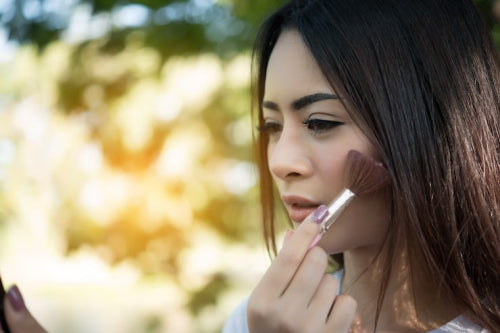
For as long as makeup has promised transformation, it's also carried a quiet betrayal for countless women: the very product meant to conceal blemishes often stirs them up worse. Imagine waking to a fresh breakout right before a big meeting or date, only to layer on foundation that clogs pores and invites more trouble. In regions from the bustling souks of the United Arab Emirates to the humid streets of Singapore and the sun-soaked beaches of Australia, this cycle hits hard especially where cultural emphasis on flawless skin amplifies the sting. But a shift is underway. As explored in How Organic Makeup Empowers Women with Acne to Feel Beautiful and Confident, organic cosmetics aren't just a trend; they're a lifeline, blending coverage with care in ways that let skin breathe and heal.
Many women feel trapped by makeup that hides flaws but risks irritation and hidden toxins. This daily choice weighs heavily, dimming confidence over time. Liht Organics invites you to embrace beauty differently. With up to 90% USDA-certified organic ingredients, our vegan, cruelty-free products deliver vibrant color and gentle care, letting you glow with confidence, knowing your skin is nurtured, not compromised. Shop Now!
The Rising Need for Gentle, Effective Makeup Solutions
Acne doesn't discriminate by passport or skyline. In the United States, where skincare aisles overflow with options, nearly 85% of people aged 12 to 24 grapple with it at some point, driven by hormones, stress, and the relentless churn of modern life. Swing over to India or Saudi Arabia, and the numbers echo, compounded by pollution and heat that turn complexions into battlegrounds. Women, in particular, bear the brunt globally, they account for over 62% of skincare spending, with 75% incorporating products into their daily rituals. Yet traditional makeup, loaded with silicones and synthetic preservatives, often exacerbates the issue, trapping oil and bacteria under a matte facade.
Enter organic makeup: formulations that prioritize ingredients from the earth over the lab, offering a dual role as concealer and comforter. Brands like Liht Organics, crafted in the USA and Singapore, lead this charge with high-performance lines boasting more than 80% clean, organic components think botanicals so pure they're safe enough to eat. These aren't flimsy pastels; they're pigmented powerhouses that nourish as they mask, addressing the root frustration: why choose between looking good and feeling good?
The demand surges for a reason. The global skincare market, valued at $131.2 billion in 2022, is barreling toward $212.96 billion by 2032, fueled by a craving for authenticity in beauty. In Asia Pacific home to Malaysia, Singapore, and India that region's anti-acne cosmetics slice already claims 42% of the pie, projected to swell from $5.29 billion in 2024 to $12.65 billion by 2034 at a 9.11% clip. Women here, scrolling Instagram or TikTok for inspo amid commutes in Dubai or Delhi, seek products that sync with their lives: lightweight, breathable, and unapologetically kind.
Emerging Trends in Organic Makeup for Acne-Prone Skin
Walk into a Sephora in Sydney or browse Namshi in the UAE, and you'll spot the pivot: shelves groaning under "clean beauty" labels that once whispered from co-op corners now shout from mainstream spots. Organic makeup for acne-prone skin isn't fringe anymore it's the smart play. Consumers crave coverage that doubles as treatment, with serums-infused foundations and balms that hydrate without heaviness. Liht Organics embodies this ethos, their formulas steering clear of pore-clogging culprits while infusing skin with antioxidants from organic sources.
Why now? Awareness has spiked. The natural and organic cosmetics market hit $41.65 billion in 2024 and eyes $103.23 billion by 2034, growing at 9.5% annually, as buyers wise up to the perils of parabens and phthalates. In North America alone, it topped $19.16 billion last year. Platforms like TikTok, buzzing in every target market from Riyadh to Mumbai, amplify the buzz quick demos of "no-breakout" routines rack up millions of views, pulling in a generation tired of quick fixes that flake under pressure.
This trend dovetails with broader wellness waves. In hyper-connected spots like Singapore, where e-commerce via sites like The Green Collective thrives, shoppers dissect ingredient lists like pros. The organic skin care segment, pegged at $9.83 billion in 2021, is set to double to $21.16 billion by 2030, with Asia Pacific leading the charge at an 8.9% CAGR. Face creams and moisturizers dominate, holding nearly half the market, because who wouldn't want a glow that lasts beyond the workday?
It's not hype; it's harmony. These products treat makeup as an extension of self-care, not a cover-up. One scroll through Gold Apple in the UAE reveals curated picks that promise and deliver skin that thanks you by morning.
Real-World Examples and Applications
Picture this: a young professional in Kuala Lumpur, juggling boardroom pitches and breakouts from Malaysia's tropical humidity. She swaps her go-to drugstore compact for an organic tinted moisturizer and notices the difference in weeks fewer flares, smoother texture, a confidence that doesn't smudge. Stories like hers pepper online forums and Faces.ae reviews, where users rave about formulas that blend seamlessly over redness without the revenge zits.
Or consider the expat in Abu Dhabi, navigating Saudi-inspired modesty with a flawless base that doesn't betray her. After ditching heavy concealers, she reports clearer pores and a ritual that feels indulgent, not obligatory. These aren't isolated wins. Across Australia and the US, where acne-prone skin care clocked $4.5 billion in 2023 and heads to $7.4 billion by 2031 at 5.3% growth, women share how organic layers have rewritten their routines. One forum thread from a Singapore-based group details a shift from frustration to freedom: "It's like my skin finally gets a vote."
The proof piles up in everyday applications. A quick TikTok tutorial from a Mumbai influencer shows layering organic blush over spot treatment, yielding a radiant finish that holds through monsoons. In LA or London wait, no, stick to targets Sydney influencers echo the sentiment, their feeds a testament to makeup that mends as it adorns. These vignettes aren't scripted; they're the quiet revolution, one swipe at a time.
Key Challenges and Limitations of Organic Makeup for Acne-Prone Skin
Of course, no revolution rolls out red carpets. The biggest hurdle? Clarity or the lack of it. Many women eyeing organic options in markets like Namshi or Gold Apple hesitate, fuzzy on what "organic" really means amid a sea of greenwashing claims. Is that 80% threshold legit, or just buzz? Ingredients lists can read like chemistry finals, breeding doubt: Will this chamomile extract soothe, or spark an itch?
Trust gaps loom large too. In regions like India or the UAE, where counterfeit cosmetics flood bazaars, skepticism runs deep why bet on a new brand when the old one's "worked" (sort of)? Then there's the trial-and-error tax: not every organic pick plays nice with every skin type. A whiff of essential oils might delight in dry Aussie climes but overwhelm oily Malaysian complexions. Allergies, though rare, demand caution patch tests aren't optional; they're essential.
Yet these snags spotlight the savvy shopper's edge. Educating oneself via Instagram deep dives or TikTok breakdowns demystifies the maze, turning objections into informed choices. Brands that prioritize transparency, like detailing sourcing from USA labs to Singapore facilities, bridge that chasm, proving performance isn't sacrificed for purity.
Opportunities, Efficiencies, and Business Impacts
For brands tuned in, this surge spells gold. The natural and organic cosmetics arena, valued at $49.62 billion in 2024, rockets toward $122.88 billion by 2034 at 9.5% CAGR, propelled by e-commerce booms that let Liht Organics reach from Riyadh retailers to Aussie online hauls. It's a chance to hook a loyal tribe: women who value ethics as much as esthetics, sticking with products that align with their clean-living ethos.
Efficiencies follow. Streamlined supply chains for organic sourcing cut waste, while direct-to-consumer models via social channels slash overheads. In Singapore or the US, where hypermarkets like those on the list command 43.9% of organic skin care sales, partnerships amplify reach without diluting the message. The payoff? Deeper bonds repeat buys from converts who evangelize on TikTok, turning one-time trials into lifelong fans.
Broader ripples hit the industry: a push toward sustainability that pressures giants to green up, fostering a market where informed consumers drive real change. It's business as evolution, rewarding those who listen.
A Beautiful, Confident Future for Acne-Prone Women
Organic makeup isn't rewriting the rules it's reminding us they were always about uplift, not undercut. For women wrestling acne across the UAE's glittering towers or India's vibrant chaos, these gentle warriors offer more than camouflage: they restore agency, letting beauty bloom from within. As the organic skin care wave crests doubling in size by decade's end its promise sharpens: a world where makeup heals the hand that holds the brush.
Experts see this as just the dawn. With anti-acne innovations blending ancient botanicals and biotech, the horizon glows inclusive, potent, pure. So why wait for flawless? Dive into Liht Organic's lineup their eat-safe, skin-loving staples made for real lives. Blend on, breathe easy, and step out not just covered, but truly seen. Your reflection's waiting to thank you.
Frequently Asked Questions
Does organic makeup really help with acne-prone skin?
Yes, organic makeup can significantly help acne-prone skin by using gentle, natural ingredients that don't clog pores like traditional makeup often does. Unlike conventional cosmetics loaded with silicones and synthetic preservatives that can trap oil and bacteria, organic formulations prioritize earth-based ingredients that nourish while providing coverage. Many women report fewer breakouts and clearer skin when switching to organic makeup products with high percentages of clean, botanical components.
What makes organic makeup different from regular makeup for acne?
Organic makeup differs from regular makeup by containing over 80% clean, natural ingredients sourced from botanicals rather than synthetic chemicals. These formulations are designed to be breathable and non-comedogenic, meaning they won't block pores or exacerbate existing acne. Additionally, organic makeup often doubles as skincare treatment, infusing skin with antioxidants and healing properties while providing coverage, rather than simply masking blemishes.
Is organic makeup as effective as traditional makeup for covering acne?
Modern organic makeup offers excellent coverage comparable to traditional products while being gentler on acne-prone skin. Today's organic formulations are "pigmented powerhouses" that provide full coverage without the heavy, pore-clogging ingredients found in conventional makeup. The global organic cosmetics market's rapid growth to $41.65 billion in 2024 reflects increasing consumer satisfaction with both the performance and skin benefits of these clean beauty alternatives.
Disclaimer: The above helpful resources content contains personal opinions and experiences. The information provided is for general knowledge and does not constitute professional advice.
You may also be interested in: About Us – Liht Organics
Many women feel trapped by makeup that hides flaws but risks irritation and hidden toxins. This daily choice weighs heavily, dimming confidence over time. Liht Organics invites you to embrace beauty differently. With up to 90% USDA-certified organic ingredients, our vegan, cruelty-free products deliver vibrant color and gentle care, letting you glow with confidence, knowing your skin is nurtured, not compromised. Shop Now!
Powered by flareAI.co
شاركي
You May Also Like
-

Discovering Self-Love Through Clean Beauty: A Guide to Nurturing Your Inner and Outer Self
In the journey of self-love, every action, thought, and choice we make towards ourselves can be a powerful affirmatio...
-

The Science Behind Organic Makeup and Pregnancy: A Gentle Choice for Moms-to-Be
wp:paragraph Pregnancy is a wonderful and exciting journey that comes with added responsibilities of ensuring the ...
-
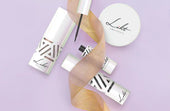
Liht Organics Black Friday: Enhance Your Beauty Routine with Vegan, Organic, and Natural Essentials!
As the holiday season approaches, there’s a sparkle in the air, and we at Liht Organics are thrilled to add a touch o...
-

Organic Makeup That Heals As It Conceals
Liht Organics Empowers Women With Only The Best For Their Beauty NeedsLiht Organics combines the best of both worlds:...
-
![[FEATURE] Liht Organics to debut at TFWA Asia Pacific show](//lihtorganics.com/cdn/shop/articles/1_1.png?v=1759328400&width=170)
[FEATURE] Liht Organics to debut at TFWA Asia Pacific show
‘Organic makeup that’s safe enough to eat’ — Liht Organics to debut at TFWA Asia Pacific show by Hannah Tan | 24 Apri...
-
![[FEATURE] The Singapore-based organic makeup brand is a first-time exhibitor at this year’s TFWA Asia Pacific Exhibition in Singapore in May 2025](//lihtorganics.com/cdn/shop/articles/2_1.png?v=1759328386&width=170)
[FEATURE] The Singapore-based organic makeup brand is a first-time exhibitor at this year’s TFWA Asia Pacific Exhibition in Singapore in May 2025
TFWA Asia Pacific preview: Liht Organics targets expansion in travel retail By DFNI Staff Writer The Singapore-bas...
-
![[FEATURE] Travel Retail Awards 2025 finalists - Best Make-up Product Color-Intense Liquid Lipstick – Liht Organics](//lihtorganics.com/cdn/shop/articles/4_e2f54f0f-fcd1-46e7-9990-fc9d29e35131.png?v=1759328382&width=170)
[FEATURE] Travel Retail Awards 2025 finalists - Best Make-up Product Color-Intense Liquid Lipstick – Liht Organics
Revealed: Travel Retail Awards 2025 finalists By Trbusiness Editor | Wednesday, 23 July 2025 15:21 TRBusiness is th...
-
![[FEATURE] Liht Organics targets expansion in travel retail](//lihtorganics.com/cdn/shop/articles/3_1.png?v=1759328346&width=170)
[FEATURE] Liht Organics targets expansion in travel retail
Organic makeup that’s safe enough to eat: Liht Organics targets expansion in travel retail By Laura Shirk Liht Organ...
-

[FEATURE] Gulf News: TikTok’s strawberry girl makeup trend: How to achieve that rosy glow inspired by Hailey Bieber
Berry, berry, strawberry, love strawberry, like BTS’s J-Hope, the band’s strawberry enthusiast once said. If only we ...
-

[FEATURE] Gulf Business Magazine : Liht-ing it up
Our founder, Nerissa Low was interviewed by Gulf Business, where she discussed her experience launching Liht, an orga...
-

[FEATURE] Daily Vanity: 11 local beauty brands owned by women – you’d be surprised how many of them started in their kitchens!
When we give a shout-out to homegrown beauty businesses, we aren’t just doing it for the sake of supporting local. Th...
-

[FEATURE] Entrepreneur ME : UAE-Based Liht Organics' Nerissa Low On Crafting An Organic Makeup Brand For The Skin-Conscious Consumer
As is the case with the origin stories of so many startups out there, Liht Organics came into being after its founder...
-
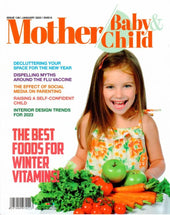
Mother, Baby & Child Editor’s Pick: Liht Organics Lights the Way
Excited to be the Mother, Baby & Child’s ‘Editors pick’ for their choice of Beauty brand.The article outlined the...
-
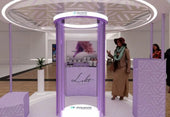
[FEATURE] EmiratesWoman - 8 Fabulous things to do in Dubai this weekend
by SARAH JOSEPHJANUARY 20, 2023Try the UAE’s first virtual reality makeup podium The popular VR-backed makeup exper...
-

Nerissa Low of Liht Organics On The Self-Care Routines & Practices Of Busy Entrepreneurs and Business Leaders
By Maria Angelova, CEO of Rebellious Intl.Date: 4 January, 2023Nerissa Low of Liht Organics On The Self-Care Routines...
-

Liht Organics: Meet the beauty brand that has caught the eye of the Royal Family of Bahrain
By Crystal Lee Digital Editor28 May 2021The world of clean beauty is, ironically, rather murky.That’s because the ter...
-

The latest luxury makeup and skincare drops, including serums, concealers, moisturisers and more
Allisa Noraini21 May, 2021It’s fine to splurge in the name of beauty. This new range of makeup and skincare drops are...
-

These SG Beauty Bosses Are Conquering The World Despite The Pandemic
First Singapore, then the US, China, Germany, Dubai, UK, South Korea, Malaysia, Hong Kong, Thailand, Australia… By...
-

Nerissa Low, Founder at Liht Organics
Written by Callum LaingPosted on December 26, 2020 10 min readNerissa Created Organic Makeup That Actually Improve...
-

Liht Organics – Makeup That Makes You
At Liht Organics, our mission is simple – to provide women (and men) with a safe experience when it comes to beauty s...
-

Why Should We Use Organic Makeup?
We cannot deny that cosmetics is one of our beauty essential item – it enhances our looks and conceals our flaws. Man...
-

Organic makeup and why your skin will love it: Liht Organics founder
By Jolene,July 27, 2020 |7 mins readOrganic make up in Singapore is a trend that is fast-catching on here as we becom...
-

[FEATURE] DC EDIT – Makeup & Confidence: Talking Self-love With Liht Organics’ Founder Nerissa Low
Makeup and confidence — the long, drawn-out fight that many of us have grappled with personally. I’m sure I’m not the...
-

[FEATURE] THE FEMALE CULTURE – I TRIED LIHT ORGANICS AND THIS IS HOW IT WENT
I’m a huge fan of makeup and I love testing out new products so I was pretty excited to get my hands on Liht Organics...
-

[FEATURE] SINGAPORE MOTHERHOOD – The Best Organic and Natural Skincare and Makeup for Pregnant and Breastfeeding Mums in Singapore
Pregnancy is a hormone-volatile period for women. One place where this makes itself seen and felt is on the skin. Som...
-

[FEATURE] AFTER CLINIC HOURS – 21 Back to Beauty Deals in Singapore (2020)
With spas and salons shuttered island wide for two months, I never thought I’d be this desperate for a good old’ Swed...
-

[FEATURE] KUL AL USRA MAGAZINE JUNE 2020
Choosing Pinks & Oranges this summer!Featured: Moisture Burst Lip Glaze in Pink Cupcake.
-
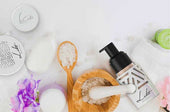
[FEATURE] Award-winning Organic Makeup Brand Liht Organics Gives Back to the Community & Environment During COVID-19
Singapore’s First Organic Makeup Brand with 100% Natural Makeup That Is Safe Enough to Eat Liht Organics promises org...
-

[FEATURE] COSMETICS DESIGN ASIA – COVID-19 ‘WAKE-UP CALL’: SINGAPORE’S LIHT ORGANICS SEES GLOBAL POTENTIAL AMID CLEAN BEAUTY CLAMOUR
Original article at: https://www.cosmeticsdesign-asia.com/Article/2020/06/26/Singapore-s-Liht-Organics-sees-globa...
-

[FEATURE] THE LIFESTYLE COLLECTIVE – BEAUTY SHOULD NEVER BE CRUEL
Date: June 24, 2020Author: Kristen Chen Liht (pronounced as light) Organics is a Singaporean organic makeup brand t...
-

[FEATURE] NÜYOU – 7 ONLINE PLATFORMS TO SHOP FOR CLEAN BEAUTY PRODUCTS
纯净美容(Clean Beauty)的美肤概念,再近几年来越来越受欢迎。随着消费者“爱自己”的美容意识逐步提升,对于用在脸上的所有物品、成分更为关注和讲究。以广义来讲,纯净美容主张使用“干净”成分和无毒配方,让肌肤的可能性损伤减到最小...
-

[FEATURE] COSMOPOLITAN MIDDLE EAST – 3 BENEFITS OF SWITCHING TO ORGANIC BEAUTY PRODUCTS THIS RAMADAN
By Cosmo – May 08, 2020Nerissa Low, founder of Liht Organics, shares the ultimate benefits of going organic this mont...
-

Nerissa Low of Liht Organics: “Seeing Light at the End of the Tunnel; 5 Reasons To Be Hopeful During this Corona Crisis”
Ely Weinschneider, Psy.D.May 8 · 9 min read …It shows us that everyone- whether we are rich or poor, regardless...
-

[FEATURE] AL MARA MAGAZINE APRIL 2020
-

[FEATURE] RetailME April 2020 – Liht Organics Stays Firm On Strengthening GCC Presence
-

[FEATURE] EMARAT AL YOUM NEWSPAPER – 27 MARCH 2020
English Translation:In spring and summer days, women love to have very light makeup in terms of color and texture, ...
-

[ARTICLE] WKND Magazine March 2020 – Know Your Organic Makeup
-

[FEATURE] AVIAMOST DUBAI – March/April 2020
English Translation:Lipstick with organic flowers. Thanks to the rich complex of natural ingredients, the lipstick...
-

[FEATURE] RUSSIAN EMIRATES (MAR/APR ISSUE)
Russian Emirates is a luxury lifestyle and fashion magazine covering information about the UAE, fashion, beauty, j...
-

[FEATURE] – KUL AL USRA MAGAZINE MARCH 2020
GET THE LOOK!
-

[FEATURE] IMAGES Retail ME – Liht Organics Announces GCC-Wide Expansion
Rupkatha Bhowmick Mar 10, 2020 The plan is to reach 75 Liht Organics retail touchpoints by June-July 2020 and touch...
-

[FEATURE] BABY & CHILD SPRING 2020 – NATURAL BEAUTIES
-

[FEATURE] AWQAT DUBAI – Liht Organics: The First Premium Organic Makeup Brand
ENGLISH TRANSLATION:Liht Organics – The First Premium Organic Makeup Brand Liht Organics, a premium organic beauty ...
-

[FEATURE] FRIDAY MAGAZINE – THE RETRO EYELINER LOOK
-

[FEATURE] MOTHER BABY & CHILD – VANITY ESSENTIALS – THE BEAUTY EDIT
-

[FEATURE] Masala! Magazine February/March 2020 Issue – Beauty Debut: Liht Organics
-

[Feature] – TimeOut Singapore – The Best Local Beauty and Skincare Brands In Singapore
For full article, click here.
-

[FEATURE] KUL AL USRA MAGAZINE – LIHT UP YOUR WORLD WITH LIHT ORGANICS
[ENGLISH TRANSLATION]Liht Up Your World With Liht OrganicsThe First Premium Organic Makeup Brand To Debut In The Mi...
-

[FEATURE] SINGAPORE TATLER – 9 Local Beauty Brands You Should Know Of
-

[FEATURE] nüyou August 2019 Issue – 15 Faces To Watch
-

[FEATURE] HONEYCOMBERS – Local Beauty Gurus: Singapore Beauty Brands You Need To Know About
-

[FEATURE] The Wellness Insider – Seeing The Liht With Founder Nerissa Low
-

[FEATURE] 联合早报 (LianHeZaoBao) – Women Entrepreneur Awards 2019 Coverage
-

[FEATURE] THE STRAITS TIMES Life – Clean beauty with a Singapore heart
-

Romantic Organic Makeup Looks for Valentine's Day: Tips, Tricks, and Product Picks
Valentine's Day is the perfect occasion to embrace the beauty of organic makeup. At Liht Organics, we believe in the ...
-
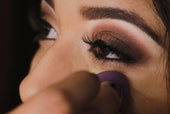
Enhance Your Eyes: A Guide to Eyeliner for Every Eye Shape with Liht Organics
Welcome to the Liht Organics blog, where we believe in celebrating the natural beauty of every eye shape. Today, we'r...
-
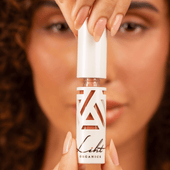
How to do makeup with only lipstick?
At Liht Organics, we believe in the power of clean beauty and the artistry of makeup. Makeup is more than just enhanc...
-

How to Clean Your Makeup Brushes in 6 Simple Steps
Cleaning your makeup brushes may seem like a tedious task, but it's an essential part of your beauty routine. Not onl...
-

Makeup Tips to Help You Look Your Most Flattering on Virtual Meetings!
After more than 2 years of work-from-home arrangement, and possibly hundreds of zoom calls and Google meet virtual me...
-
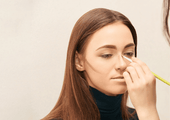
Learn How to Contour with This Simple Guide for Beginners
Want to take your makeup to the next level? Try contouring to achieve a more defined or sculpted look à la the Kardas...
-
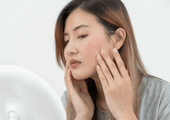
Essential and Easy Makeup Tips for Sensitive Skin
Living with sensitive skin conditions like eczema, psoriasis, and more is already not an easy feat. Throw in makeup t...
-

Raising Your Vibration: A Liht Organics Guide for Empowerment This International Women's Day
wp:paragraph As International Women's Day (IWD) approaches, it serves as a powerful reminder of the journey towards s...
-

The Beauty of Going Bare: Why Sleeping with Makeup is a No-No
Have you ever had one of those nights where you're too tired to clean off your makeup? You might believe, "Skipping...
-

Breast Cancer Awareness: Empower Your Beauty with Liht Organics Makeup
During October, we observe Breast Cancer Awareness Month as a way to unite and bring attention to breast cancer whil...
-

The Hidden Dangers of Carmine in Makeup Colorants: Embracing Healthier and Vegan Options
Makeup has become an integral part of our daily routines, allowing us to express our unique beauty. However, as we pr...
-

How can I ensure that my makeup products are organic and won't harm my skin?
When it comes to makeup, it’s important to be mindful of what you’re putting on your skin. With so many products on t...
-
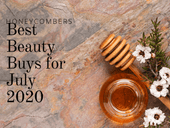
[FEATURE] HONEYCOMBERS – BEST BEAUTY BUYS IN JULY
by Nicole NithiyahWhat’s hot in our beauty hit list: Honest thoughts and top beauty stories we’re swooning over. As w...
-

Liht Organics Introduces Exclusive Gift Sets: Enhance Your Beauty This Festive Season!
As the holiday season approaches and the year draws to a close, Liht Organics is thrilled to present two enchanting g...
-

Get Spooktacular with the Best Halloween Makeup Ideas using Liht Organics' All-Natural, Vegan, and Cruelty-Free Cosmetics!
With Halloween just around the corner, it’s time to let your creativity shine and transform yourself into a spooky,...
-

Celebrating World Animal Day with Liht Organics: Embracing Natural Cruelty-Free Makeup
wp:paragraph As we observe World Animal Day, the team at Liht Organics takes great pride in honoring our pledge to...
-

Reasons Why You Should Choose Cruelty-Free Cosmetics Instead!
With increasing exposés unveiling the ugly truth behind animal testing that goes on in the beauty industry, it is lit...
-

Celebrate Singles Day with Makeup That Empowers – 22% Off at LIHT Organics!
This Singles Day, treat yourself to beauty that goes beyond skin-deep. At LIHT Organics, we believe makeup is about s...
-

Preparing for the Cozy Beauty of Autumn: A Preview of Your Fall Look
As we bid farewell to the warm, sun-kissed days of summer, it’s never too early to start dreaming about the enchantin...

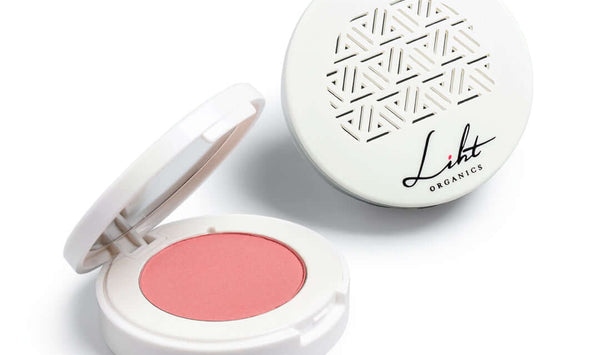
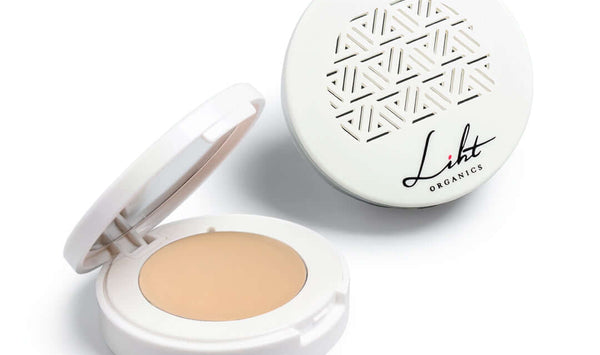
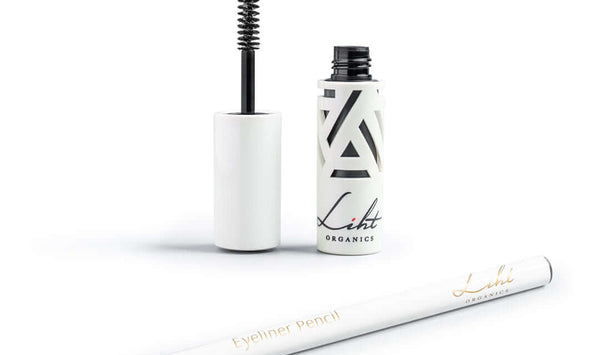
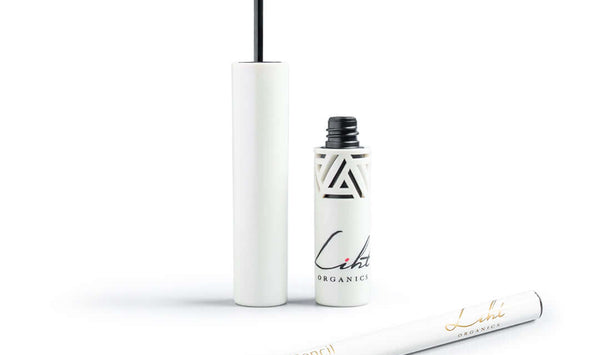
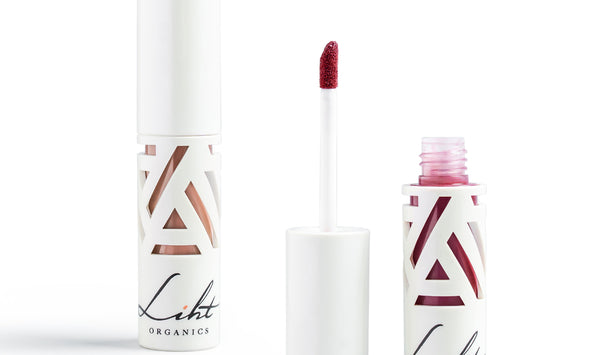
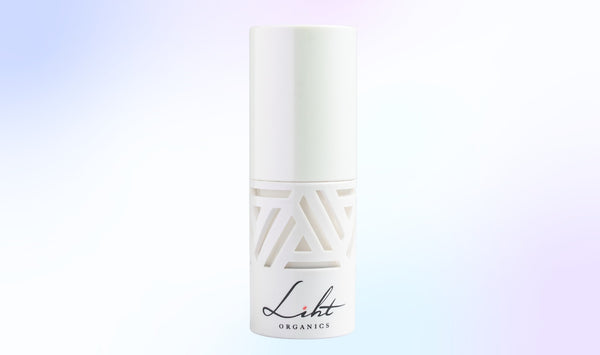

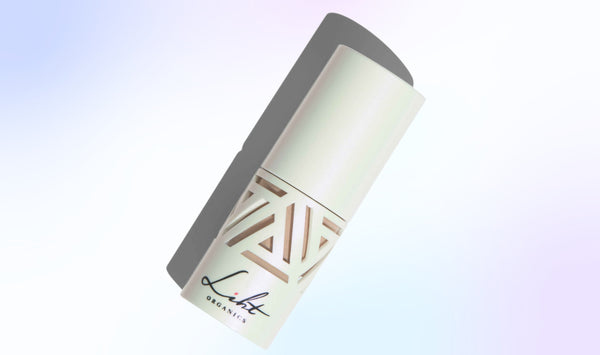
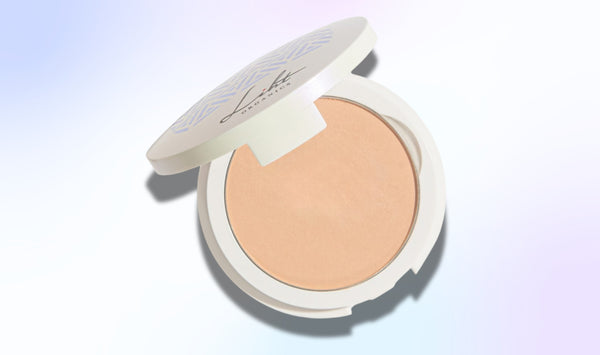
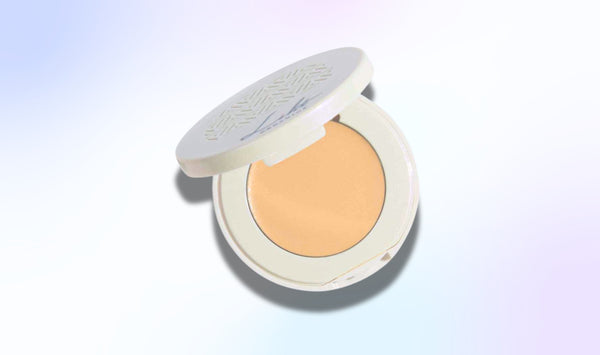
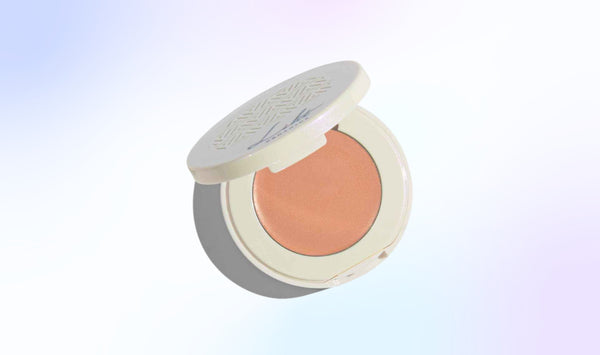
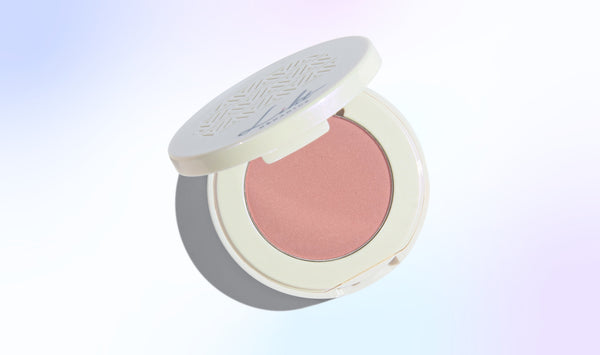
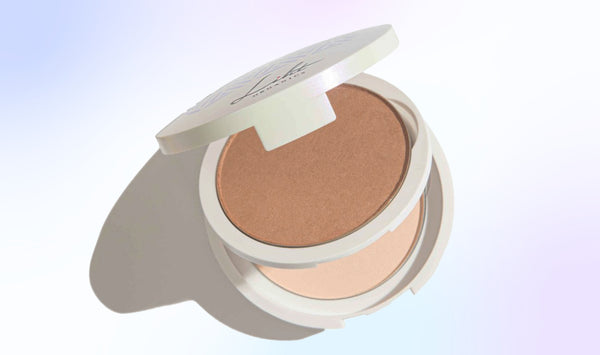
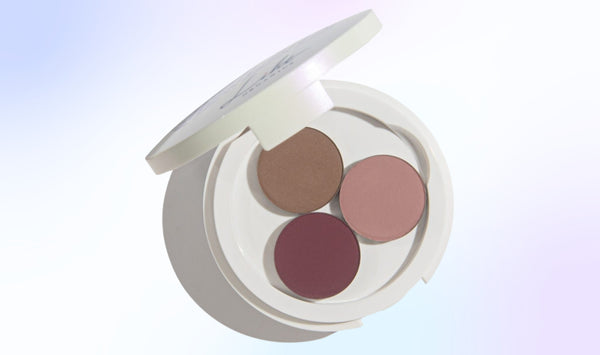
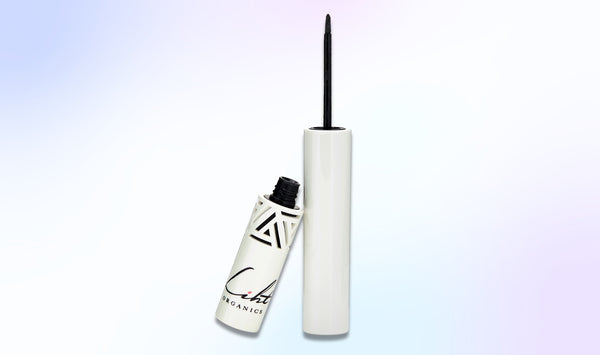
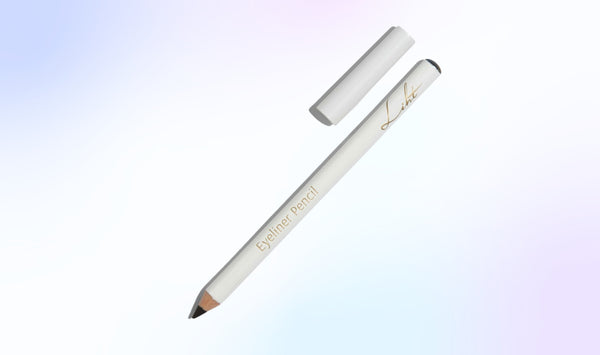
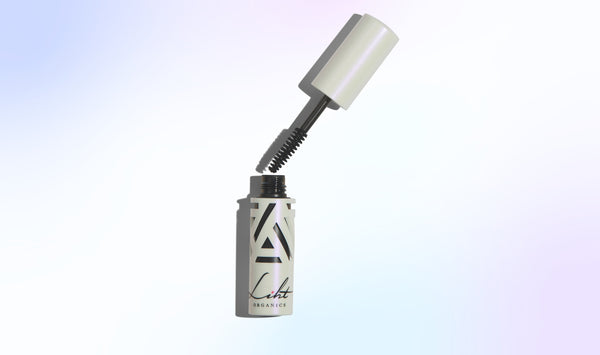
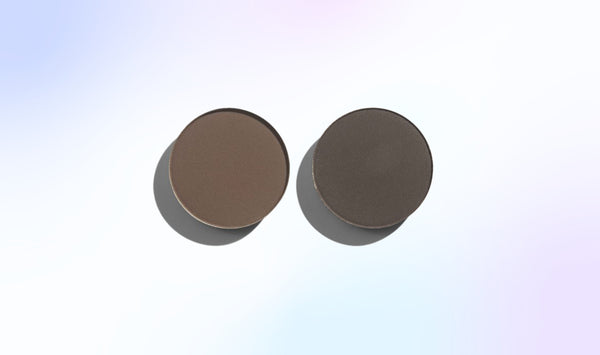
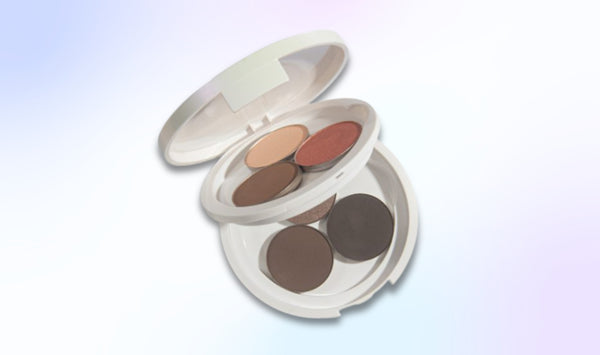
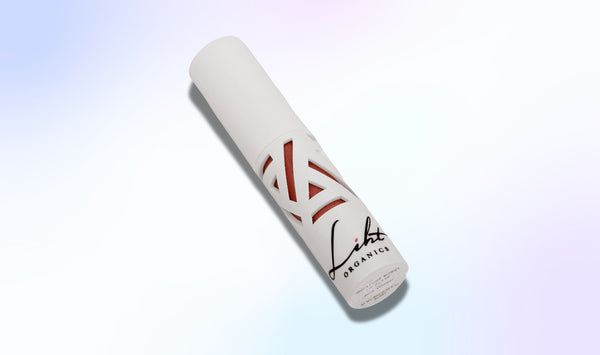
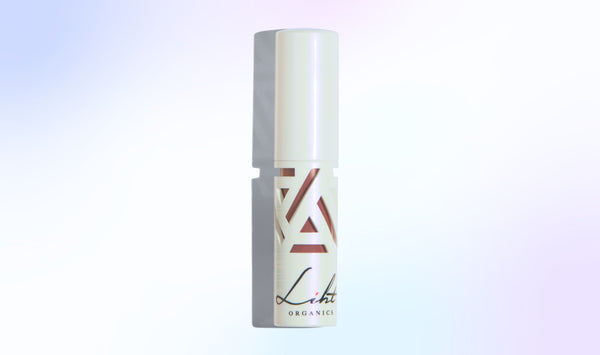
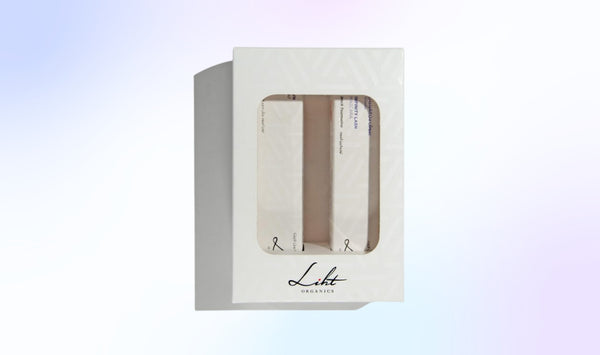
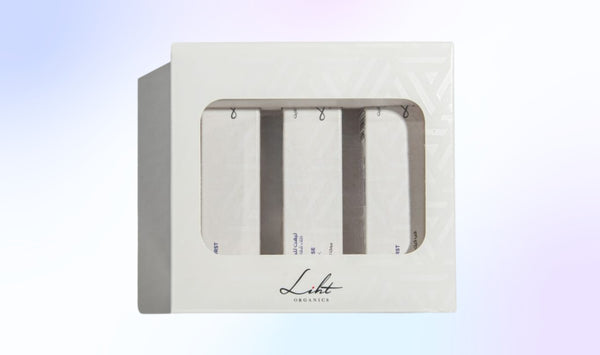


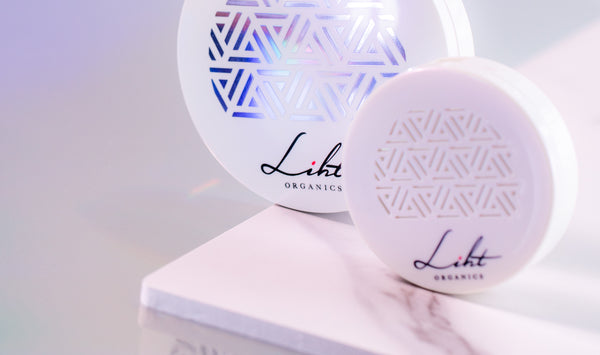
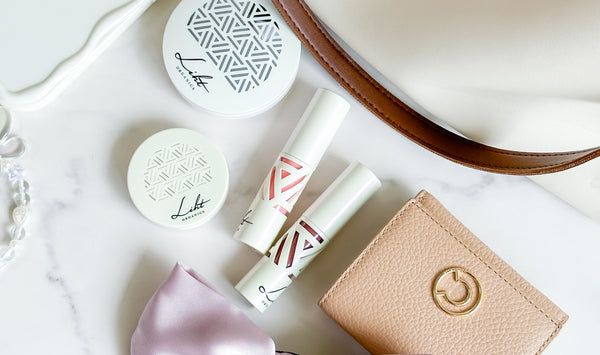
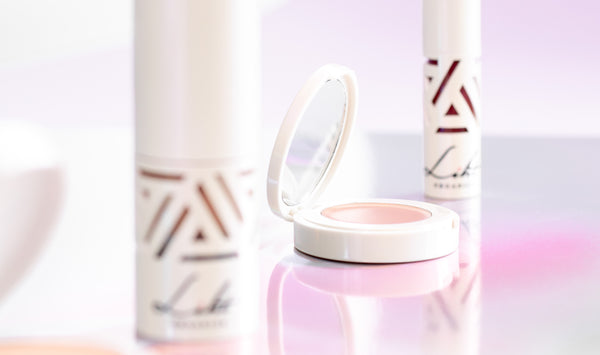




![[FEATURE] Liht Organics to debut at TFWA Asia Pacific show](http://lihtorganics.com/cdn/shop/articles/1_1.png?v=1759328400&width=170)
![[FEATURE] The Singapore-based organic makeup brand is a first-time exhibitor at this year’s TFWA Asia Pacific Exhibition in Singapore in May 2025](http://lihtorganics.com/cdn/shop/articles/2_1.png?v=1759328386&width=170)
![[FEATURE] Travel Retail Awards 2025 finalists - Best Make-up Product Color-Intense Liquid Lipstick – Liht Organics](http://lihtorganics.com/cdn/shop/articles/4_e2f54f0f-fcd1-46e7-9990-fc9d29e35131.png?v=1759328382&width=170)
![[FEATURE] Liht Organics targets expansion in travel retail](http://lihtorganics.com/cdn/shop/articles/3_1.png?v=1759328346&width=170)
































































